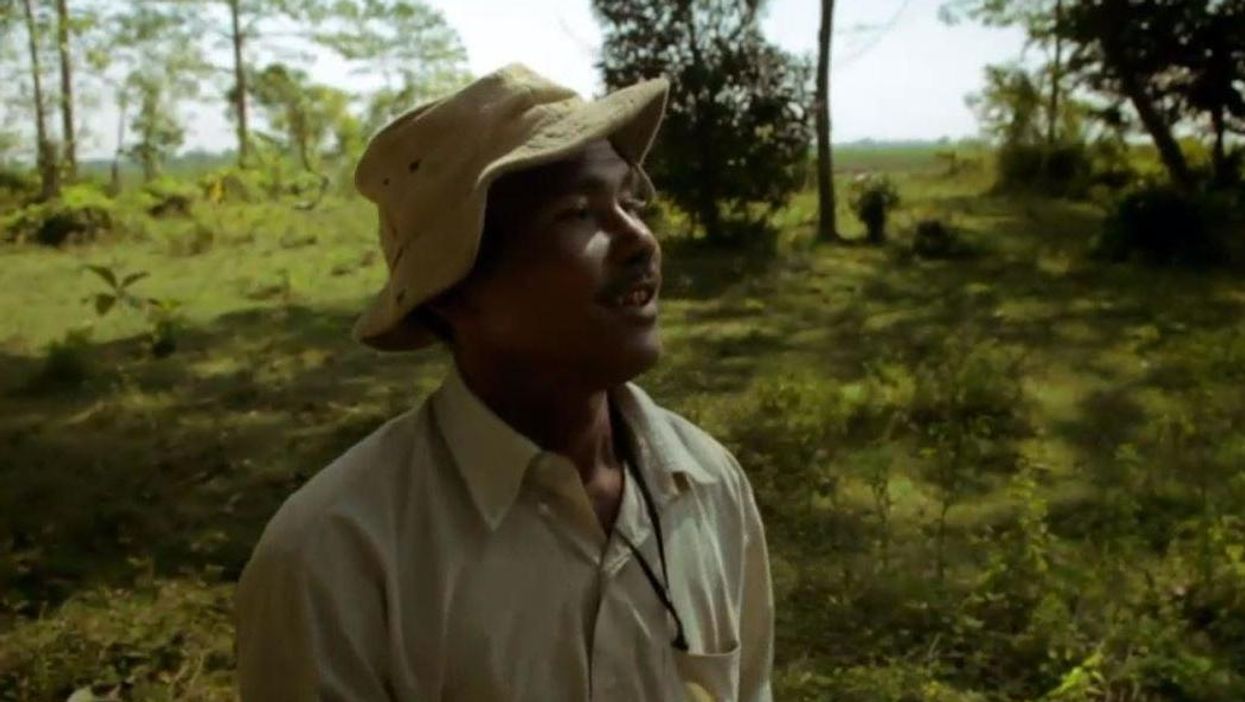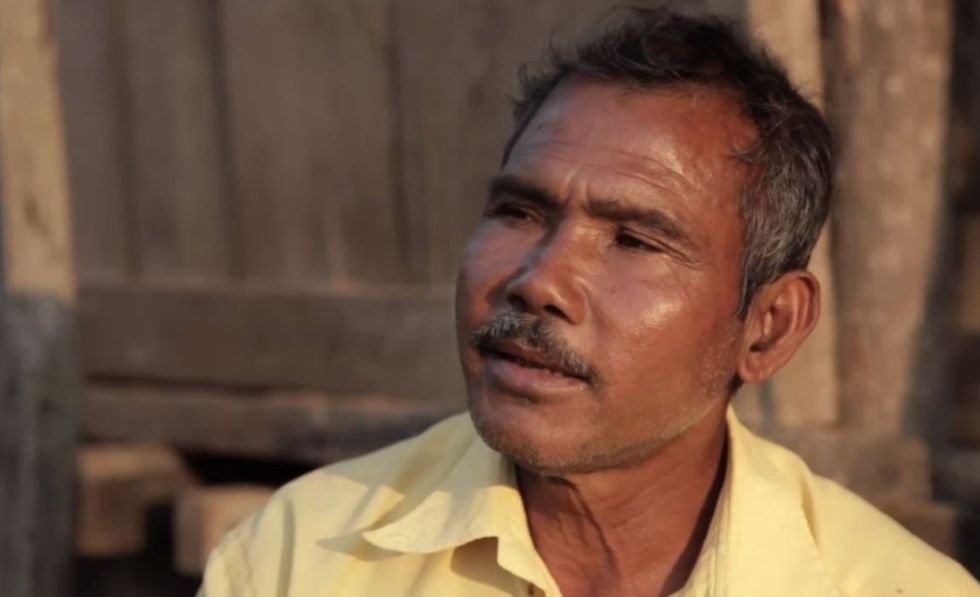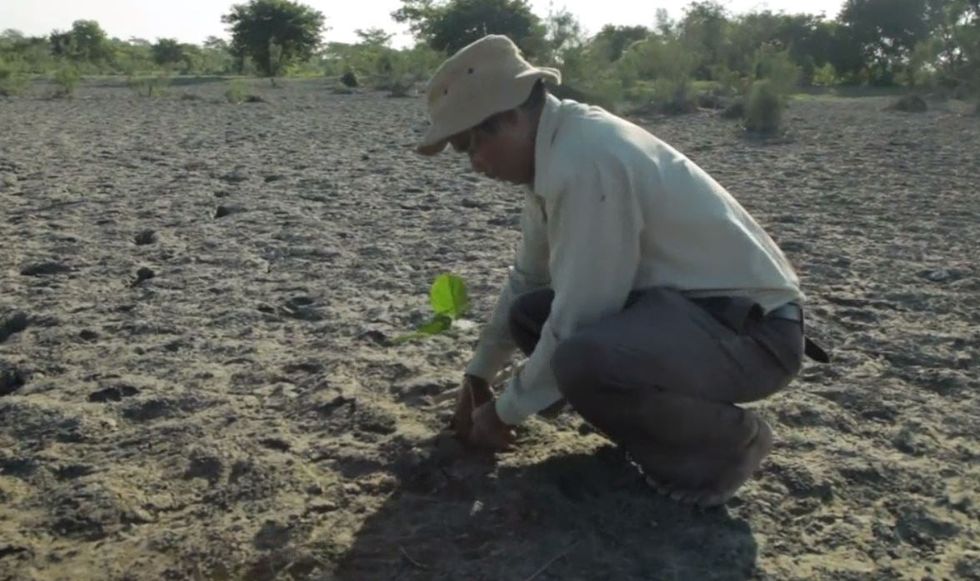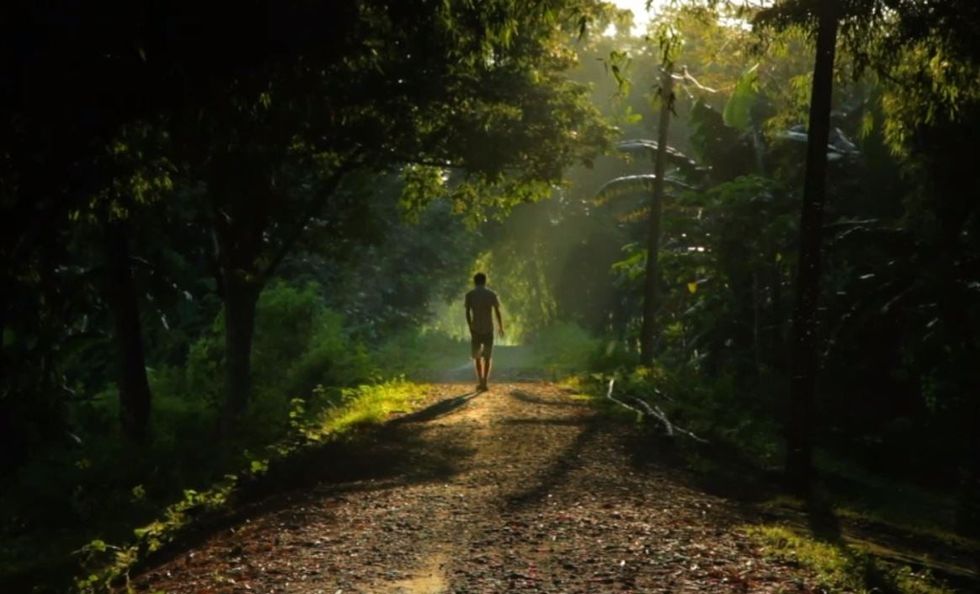
Jadav Payeng lives on the largest river island in the world, called Majuli, which falls in the middle of the Bramaputra River that flows through China, India and Bangladesh.
Over the last century, the Indian island has experienced severe soil erosion as a result of frequent floods. Every year during the Monsoon, the river destroys homes and farms, and erodes away hundreds of square kilometres of land.
Since 1917, the island has lost over half of its land mass due to erosion, and the process has escalated as of late.
In the 1970s, Mr Payeng took it upon himself to combat the wearing away of the island, and over the past 40 years, he has planted 1,400 acres of forest – larger than Central Park in New York City.

He has created an entire forest, and animals, including rhinos, tigers and elephants have made it their home. He was given the title ‘Forest Man of India’ by the country’s former President.
Documentary film maker Will McMaster picked up the story after it was covered by a local journalist, causing ripples across the world, and in 2014 a short film about him won at the Cannes Film festival.
In the documentary, which is available in its entirety on National Geographic, Mr Payeng explained:
I have planted everything myself. At first, planting was very time-consuming.
But now it is much easier, because I get the seeds from the trees themselves.

When the trees grew big it became difficult for me to protect them. The biggest threat was from men.
They would have destroyed the forest for economic gain, and the animals would be vulnerable again.

Since it is a dense forest, 115 elephants live here for three months a year. In my forest there are also deer, rhinos and many tigers.
After 40 years, we have also seen vultures return to this area.
All species on this planet are animals, including humans – the only difference is that humans wear clothes.
He lives inside a hut he built made of bamboo sticks in the forest, and every day he goes out to the river to collect water and plant more trees.
“If you develop the coconut industry, it will be very beneficial,” he says, talking about the future of the island.
I would request that the ministry of agriculture do that. Coconut trees are always straight and they help prevent erosion if planted densely enough.
So it is good for protecting the soil, for boosting the economy, and for fighting climate change.
More: This forest park is absolutely incredible
More: China is building first 'forest city' of 40,000 trees to fight air pollution













